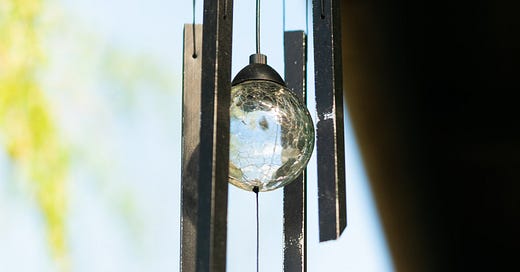Staying above the noise
Sometimes it is wonderful to be surrounded by noise. Be it listening to music we love, the vast array of natural noises in the woods or the sounds of a bustling city center. Some people even enjoy working or studying in their favourite coffee shop immersed in the din of background chatter.
But there is a different kind of noise that can feel overwhelming and leave us drained. It is the noise in our own minds which is further exacerbated by modern life. We are inundated by reams of information and distractions, all packed into small devices. We also lead busier, though likely more comfortable, lives than our ancestors with a greater variety of competing things to do in a given day.
All this can leave us wondering if there are better approaches to living. How do we sift through the busyness in our lives and in our minds so we can focus on what is most important? In essence, how do we distinguish the meaningful signals from the static in life? Here are a few musings that may be helpful.
Use your values as a filter: It is easy to feel rudderless if we don't take the time to evaluate what we value. And despite what we might like to believe, it is rarely possible to 'have it all', at least not at the same time. So knowing what we value most, allows us to make trade-offs in life more skillfully. Each person's values are neither right nor wrong, just different. One person may prioritize time with family, homecooked meals and volunteering in their local community. Another might prefer traveling, living in different countries and having time for hobbies. These two people would likely make very different choices about where and how they spend their time based on their values.
Simplify what you consume: For those of us who remember the pre-Internet era, access to information was far more limited and we had to work harder to get it. Either by buying newspapers and magazines or pouring through library books. Today, adults and children alike have a seemingly infinite amount of information at our fingertips. But our brains are not like the devices we use and can't process information in the same way. Still, we have something our devices don't - discernment. Rather than surfing from one source to the next, we can be selective about what we expose our minds to. By no means does this require us to bury our heads and be ignorant of what is happening in the world. But we can stick to high quality sources and content, think critically about what we consume, and limit the amount of time we spend on articles, podcasts and videos.
Stop problem seeking: The human mind seems to crave problems. We are natural problem solvers which is a good thing, but we sometimes take this quality too far and become 'problem seekers'. We are so used to noisy minds and constant doing that we become easily restless. We may even go in search of problems to solve and things to worry about instead of filling our time with something productive. At times like these we can go back to our values and redirect our ruminating minds to the things we have deemed important.
Engage deeply in physical tasks: One very meaningful way to settle our noisy minds is to pick a handful of tasks to deeply engage in. This could mean giving our full attention to a work task and deferring thinking about everything else until later. Or it could mean choosing a leisure task that we invest in fully like a daily walk, quietly sketching, practicing the piano or whatever your hobby of choice is. Other ways to engage deeply could include spending time really being with someone you love, fully attending to a conversation with them. Even seemingly mundane tasks like weeding your garden, folding laundry or washing the dishes can be surprisingly engaging when we pour all our senses into them, drowning out otherwise scattered thoughts.
Find moments of quiet in your day: Formal practices like meditation, journaling or yoga are wonderful ways to calm the mind even if just for a few minutes. Yet, we don't always have to rely on these practices alone
. We can use simple daily activities as opportunities for quiet. We can choose to just sit and look at the sky as we sip our tea, savour the aroma and flavour, not thinking about anything specific. Similarly we can actually pay attention to the buildings, trees and animals on our drive or train ride to work, and notice the expressions of people around us. Personally, quietly cooking is a deeply restorative process - where I relish in the abundance of colours and textures of different ingredients, the sounds of things sizzling on the stove, and the anticipation of a (hopefully) tasty, comforting meal with my family.
So if you are feeling like you need a little help sifting through and staying above the noise in your mind, perhaps give one of the ideas above a try. And keep in mind this quote from the Desiderata: 'Go placidly amid the noise and haste, and remember what peace there may be in silence.'



